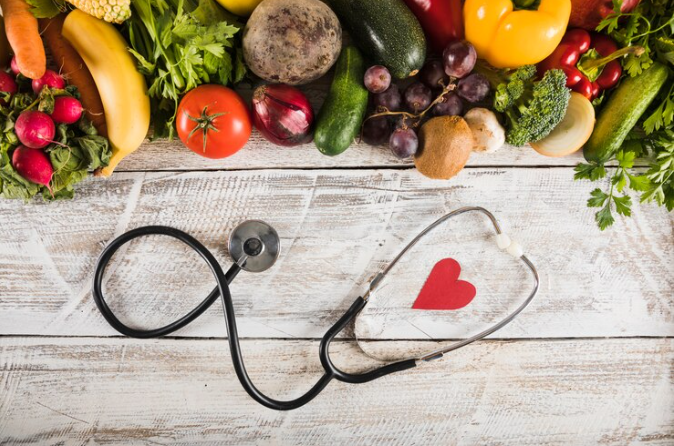Introduction: A healthy diet is the cornerstone of heart health, providing essential nutrients and antioxidants that support cardiovascular function and reduce the risk of heart disease. In this article, we’ll explore the top foods that promote heart health, offering a delicious and nutritious roadmap to nourishing your most vital organ and maintaining optimal well-being.
1. Fatty Fish: Fatty fish such as salmon, mackerel, trout, and sardines are rich in omega-3 fatty acids, which have been shown to lower levels of triglycerides, reduce inflammation, and decrease the risk of heart disease. Aim to incorporate fatty fish into your diet at least twice a week to reap the cardiovascular benefits.
2. Leafy Greens: Leafy greens like spinach, kale, collard greens, and Swiss chard are packed with vitamins, minerals, and antioxidants that support heart health. These nutrient-rich vegetables are low in calories and high in fiber, which helps lower cholesterol levels and regulate blood pressure. Add leafy greens to salads, soups, smoothies, and stir-fries for a heart-healthy boost.
3. Berries: Berries such as strawberries, blueberries, raspberries, and blackberries are bursting with antioxidants known as flavonoids, which have been shown to reduce the risk of heart disease by improving blood flow, lowering blood pressure, and reducing inflammation. Enjoy a variety of berries as a snack, topping for yogurt or oatmeal, or ingredient in smoothies and desserts.
4. Whole Grains: Whole grains like oats, quinoa, brown rice, barley, and whole wheat are rich in fiber, vitamins, and minerals that support heart health. Consuming whole grains has been linked to lower cholesterol levels, improved blood sugar control, and reduced risk of heart disease. Swap refined grains for whole grains in your meals to promote cardiovascular wellness.
5. Nuts and Seeds: Nuts and seeds such as almonds, walnuts, flaxseeds, chia seeds, and pumpkin seeds are excellent sources of heart-healthy fats, fiber, and plant-based protein. Incorporating nuts and seeds into your diet can help lower cholesterol levels, reduce inflammation, and support overall heart health. Enjoy a handful of nuts or seeds as a snack, sprinkle them on salads or yogurt, or use them as a topping for oatmeal or smoothie bowls.
6. Avocados: Avocados are a nutrient-dense fruit rich in heart-healthy monounsaturated fats, fiber, potassium, and antioxidants. Consuming avocados has been associated with lower levels of bad cholesterol (LDL), higher levels of good cholesterol (HDL), and reduced risk of heart disease. Add avocado slices to sandwiches, salads, wraps, or toast for a creamy and nutritious boost.
7. Olive Oil: Extra virgin olive oil is a staple of the Mediterranean diet, which has long been celebrated for its heart-healthy benefits. Olive oil is rich in monounsaturated fats and antioxidants, which help lower cholesterol levels, reduce inflammation, and protect against heart disease. Use olive oil for cooking, salad dressings, and marinades to promote cardiovascular wellness.
Conclusion: Nourishing your heart with a diet rich in fatty fish, leafy greens, berries, whole grains, nuts, seeds, avocados, and olive oil can significantly reduce your risk of heart disease and support overall cardiovascular wellness. By incorporating these delicious and nutritious foods into your meals and snacks, you can enjoy a lifetime of heart health and vitality. Remember, every bite you take is an opportunity to nourish your most vital organ—choose wisely and savor the benefits.

